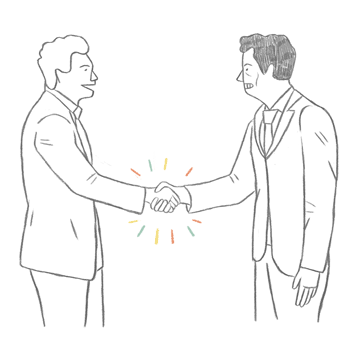BDMO

There were 36 people in a party. Some of the peoples shook hand with each other. No two of them shook hands with each more than once. It was found that no two peoples with the same number of handshakes made, had shaken hands each other. Find the maximum number of handshakes at the party.
This section requires Javascript.
You are seeing this because something didn't load right. We suggest you, (a) try
refreshing the page, (b) enabling javascript if it is disabled on your browser and,
finally, (c)
loading the
non-javascript version of this page
. We're sorry about the hassle.
Suppose that the number of peoples who shook hands with exactly i other peoples is f ( i ) . Then, due to the given condition, f ( i ) ≤ 3 6 − i . Now, the total number of handshakes is 2 1 ∑ i = 0 3 5 i f ( i ) . So,
2 1 i = 0 ∑ 3 5 i ⋅ f ( i ) ≤ 2 1 i = 0 ∑ 3 5 i ( 3 6 − i ) = 3 8 8 5
The maximum number of handshakes at the party is 3 8 8 5 .